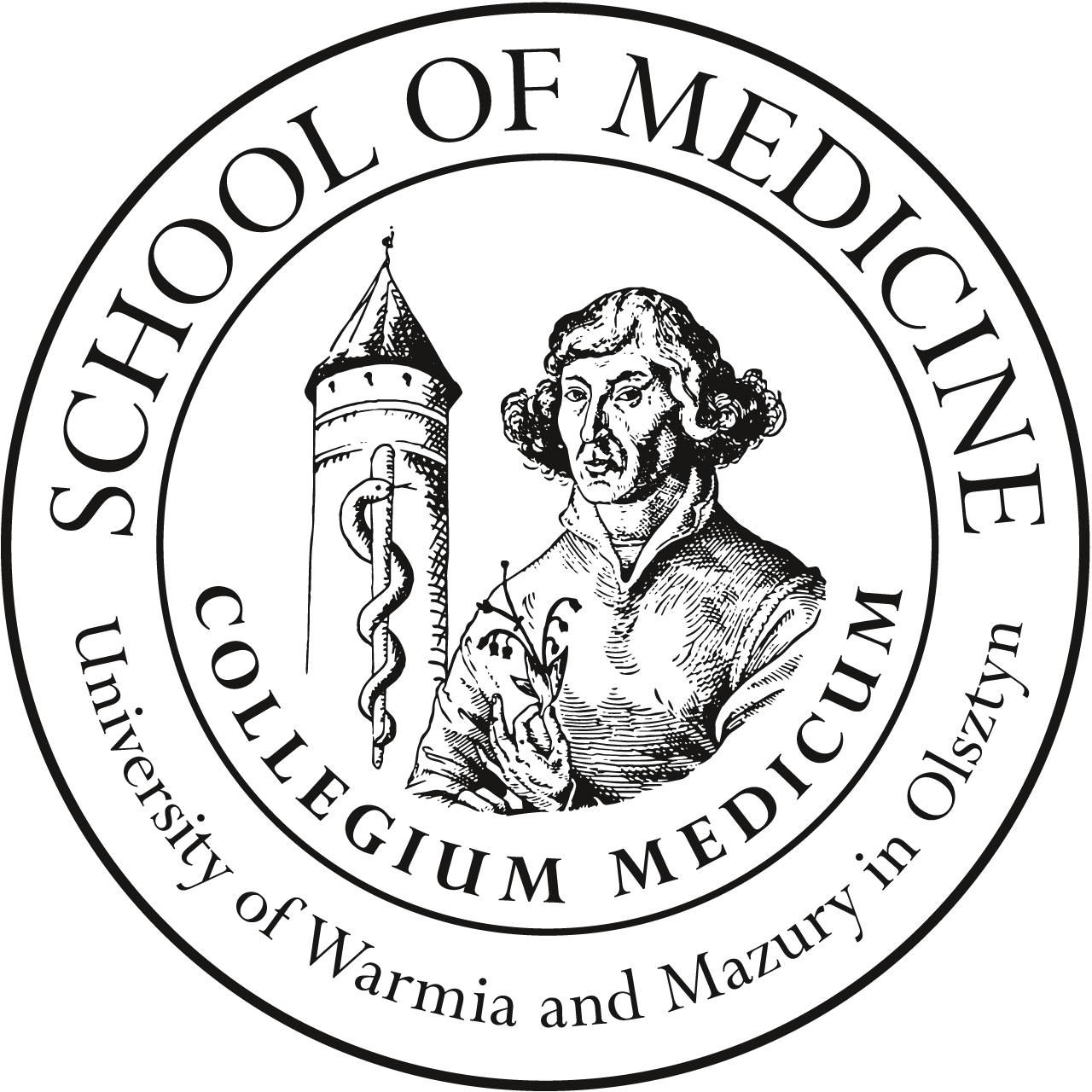SCHEDULES AND THEME
PEDIATRICS
SUMMER SEMESTER
IV YEAR
ENDOCRINOLOGY/ NEPHROLOGY
Seminars (10h)
- Endocrine system in children. (1h) Kącka - Stańczak
- Schort stature. (1h) Kącka - Stańczak
- Overweight and obesity. (1h) Kącka - Stańczak
- Disorders of the thyroid gland and the pituitary gland. (1h) Kącka - Stańczak
- Disorders of the adrenal gland. (3h) Kącka - Stańczak
- Rare diseases (3h) Rokicki
Classes (40h):
ATTENTION!!!
The sequence of topics may change during the semester according to the schedule for Pediatrics. Due to the wide range of material we recommend earlier preparation.
A test, which covers the subject from basic literature, seminars and lectures, will be taken before every practical exercises.
Classes will take place in the Regional Children’s Specialized Hospital, Żonierksa 18a street. Children’s Hospital on the Wards according to the class schedule.
ENDOCRINOLOGY
What should the students know before the beginning of the endocrinology course?
Basic knowledge of the anatomy, physiology and pathology of the endocrine glands, disorders of the carbohydrates , lipids, proteins metabolism, water and electrolytes homeostasis, the role of the insulin, glucagon, thyroid hormones, growth hormone, parathormone, calcitonin, adrenalin, cortisol, testosterone and estrogens.
A test from the material which covers the subject matter on the basis of obligatory textbooks, seminars and lectures will be taken before the practical classes.
TOPIC 1: History taking and physical examination of the children with suspicion of the endocrine disorders. Medical case record
Assessment of the physical development of the children(Tanner scale). Assessment of the nutrition of the children. Measurements of the waist and hips circumference. BMI assessment. Practical using of the percentile charts.
Calcium and phosphorus homeostasis dysfunction, rickets.
TOPIC 2: Disorders of growth and stature. Short and tall stature – causes, symptoms, diagnostic pathways and treatment
Management pathways of the children with disorders of the stature. Additional tests in children with tall and short stature.
Management of the child with the short stature. Assessment of the growth. Bone age.
Causes of the short stature: the most common organic disorders of the CNS causing growth hormone deficiency, medications, endocrine disorders (CAH), genetic (Turner syndrome) and metabolic disorders (mucopolisaccharidoses), systematic disorders (chronic renal disease)
Somatotropin hypopituitarism – national treatment program.
Child with suspicion of the metabolic disease – diagnostics pathways. FAS – fetal alcohol syndrome.
Case report discussion.
TOPIC 3: Disorders of the thyroid gland. Hypothyroidism, hyperthyroidism. Thyroid nodules
Causes, symptoms, diagnostics pathways of the disorders of the thyroid gland. Additional test in thyroid disorders.
Examination of the patients with thyroid disorders – medical history taking, physical examination, discussion about diagnosis – interpretation of the laboratory tests, making final diagnosis and management plan.
Case report discussion.
TOPIC 4: Obesity metabolic syndrome. Credit: medical case record.
History taking and examination of the patient suspected of obesity and metabolic syndrome. Genetic syndromes related with obesity.
Discussion about diagnosis – interpretation of the laboratory tests, making final diagnosis and management plan.
Treatment of the obesity in children. Case report discussion.
Patient report – prepared by the students. Final assessment of the students.
NEPHROLOGY - Pediatric Clinic – Pediatric II Department with nephrology and Cardiology
What should the student know before the begging of the pediatric nephrology course?
Anatomy, physiology and pathology of the kidney and urinary tract.
1. A test related to practical classes (the material covering the topic of practical classes and seminars on the basis of obligatory textbooks and lectures) will be taken during the classes.
2. Medical history will be discussed with an assistant on the last day of the block.
TOPIC 1: Laboratory test in pediatric nephrology. (5h)
Discussion on interesting patients hospitalized in the ward.
History taking and physical examination.
Participation in the medical round, specialist consultations, outpatient clinic.
TOPIC 2: Hematuria. Glomerulonephritis, mediacal case record (5h)
IgA-related vasculitis, Haemolytic uremic syndrome (HUS)
Idiopathic nephritic syndrome: epidemiology, prevalence and etiology. Pathology, clinical manifestations and signs. Diagnosis. Ttreatment (types of drugs, supportive treatment, prevention of infections). Complications. Prognosis. Types of nephrotic syndrome due to corticosteroid therapy efficacy. Other types of nephrotic syndrome (e.g. secondary, congenital, other)
Discussion on interesting patients hospitalized in the ward.
History taking and physical examination.
Participation in the medical round, specialist consultations, outpatient clinic.
TOPIC 3: Urination disorders. Urinary tract infections
Physiology of voiding, diuresis accordingto age: etiology and epidemiology of voiding disorders in children: clinical manifestations: urine incontinence according to ICCS. Definition of nocturnal enuresis primary/ secondary nocturnal enuresis, diagnostic studies for nocturnal enuresis: treatment of nocturnal enuresis.
Discussion on interesting patients hospitalized in the ward.
History taking and physical examination.
Participation in the medical round, specialist consultations, outpatient clinic.
TOPIC 4: Proteinuria. Nephrotic syndrome
Discussion on interesting patients hospitalized in the ward.
History taking and physical examination.
Participation in the medical round, specialist consultations, outpatient clinic.
Discussion on interesting patients hospitalized in the ward.
History taking and physical examination.
Participation in the medical round, specialist consultations, outpatient clinic.


